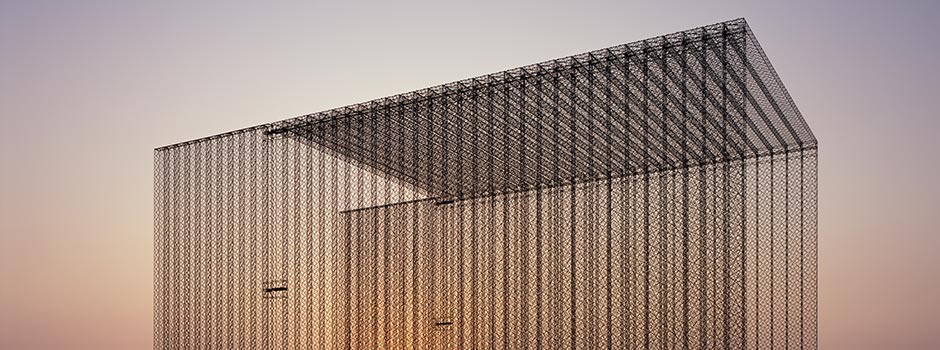
ARCHITECTURE Expo 2020 Dubai’s Entry Portals Designed by Leading Architect Asif Khan
Feb 10, 2020 FEATURE, Architecture

Conceived by Expo 2020 in collaboration with top British architect Asif Khan and his studio, the portals are a futuristic adaptation of the traditional mashrabiya, an intricate design used across the region to regulate light and airflow.
Ahmed Al Khatib, Chief Development and Delivery Officer, Expo 2020 Dubai, said: "We cannot wait to open our doors to the world on 20 October 2020, and the Expo Entry Portals will provide a wonderful way to welcome millions of people from across the globe to The World's Greatest Show, giving a first taste of the amazing architecture and groundbreaking innovation they will experience all around the site."
The reveal of the Expo Entry Portals follows the release of impressive new drone video footage showcasing the Expo 2020 site, including the stunning completed Al Wasl Plaza.
The remarkable portals are woven entirely from strands of ultra-lightweight carbon-fibre composite that lend incredible structural strength. This enables the ethereal structures to stand 21 m high (taller than a six-storey building) and 30 m long, without any additional support.
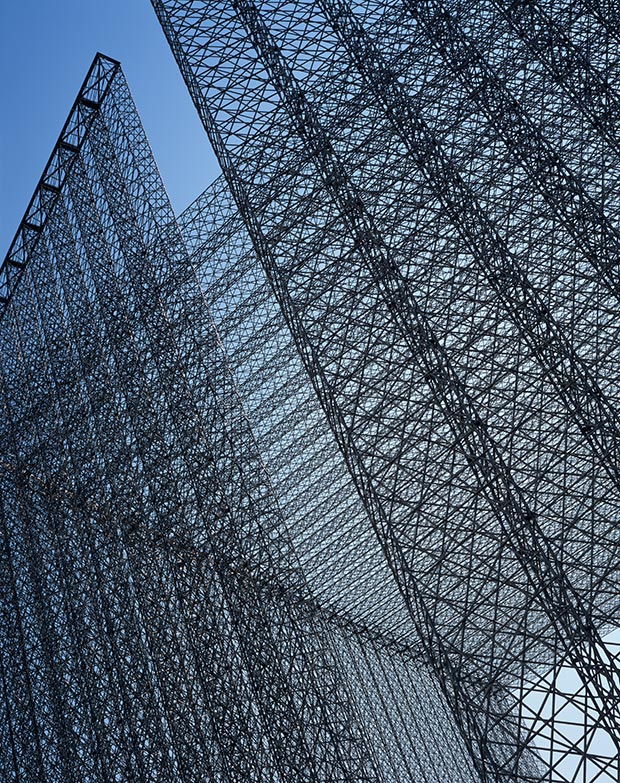 The Expo 2020, Dubai Entry Portals. Designed by Asif Khan. Photo by Helone Binet
The Expo 2020, Dubai Entry Portals. Designed by Asif Khan. Photo by Helone Binet
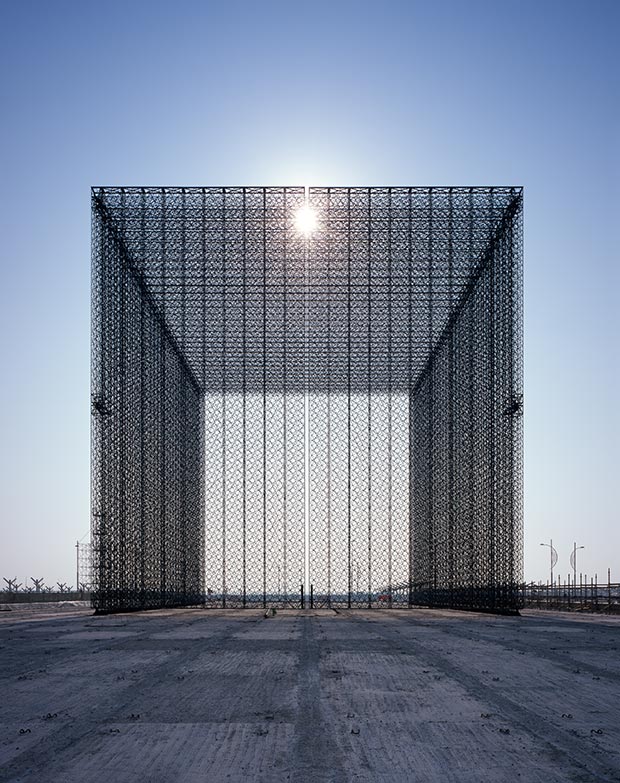 The Expo 2020, Dubai Entry Portals. Designed by Asif Khan. Photo by Helone Binet
The Expo 2020, Dubai Entry Portals. Designed by Asif Khan. Photo by Helone Binet
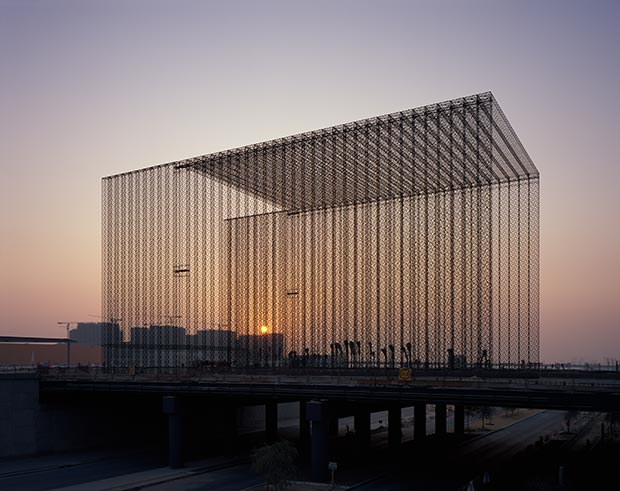 The Expo 2020, Dubai Entry Portals. Designed by Asif Khan. Photo by Helone Binet
The Expo 2020, Dubai Entry Portals. Designed by Asif Khan. Photo by Helone Binet
Each portal features two vast doors, 21 m high and 10.5 m wide, that will be opened every morning of the 173 days of Expo 2020 in a symbolic act of welcoming the world. The portals lead to tree-filled arrival courtyards, also designed in collaboration with Khan, one in each of the three Expo 2020 districts: Opportunity, Mobility, and Sustainability.
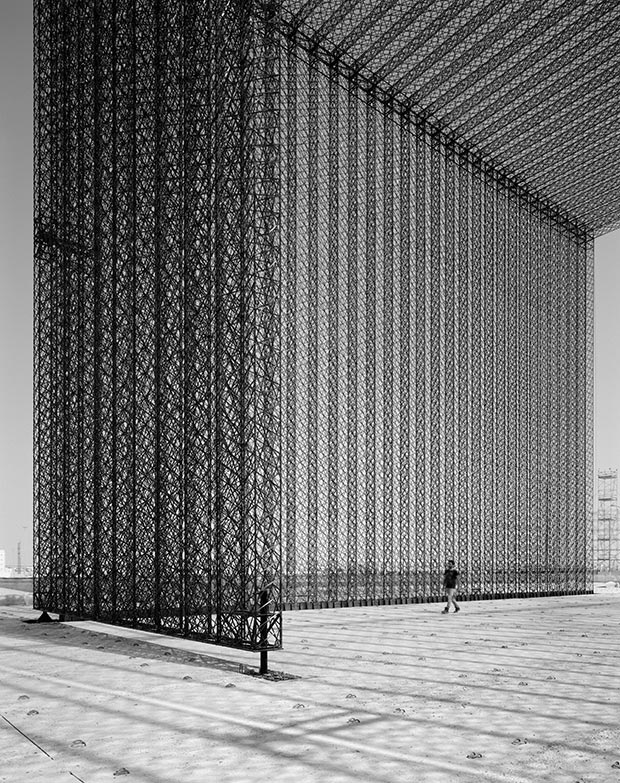 The Expo 2020, Dubai Entry Portals. Designed by Asif Khan. Photo by Helone Binet
The Expo 2020, Dubai Entry Portals. Designed by Asif Khan. Photo by Helone Binet
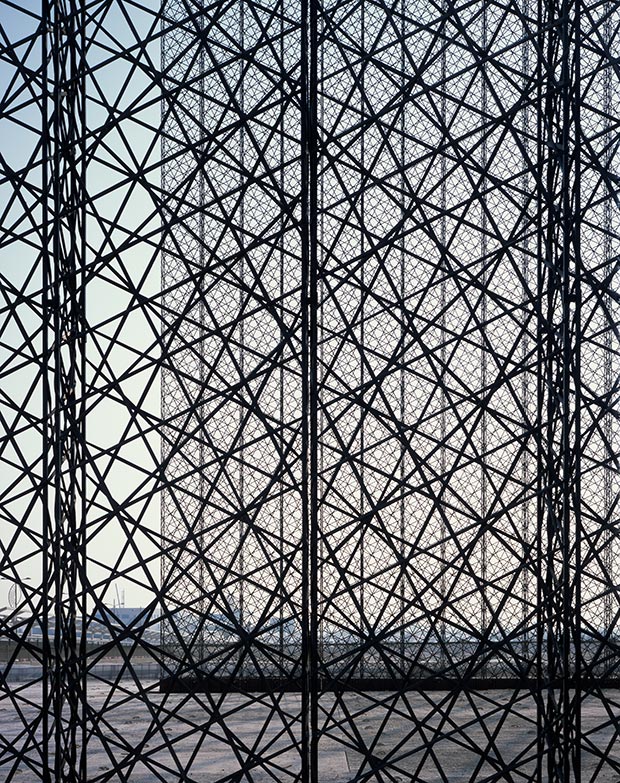 The Expo 2020, Dubai Entry Portals. Designed by Asif Khan. Photo by Helone Binet
The Expo 2020, Dubai Entry Portals. Designed by Asif Khan. Photo by Helone Binet
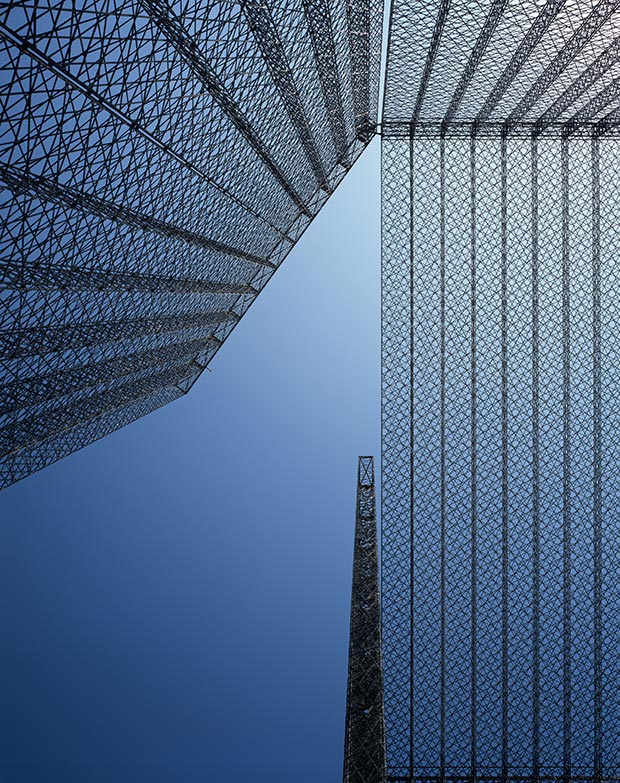 The Expo 2020, Dubai Entry Portals. Designed by Asif Khan. Photo by Helone Binet
The Expo 2020, Dubai Entry Portals. Designed by Asif Khan. Photo by Helone Binet
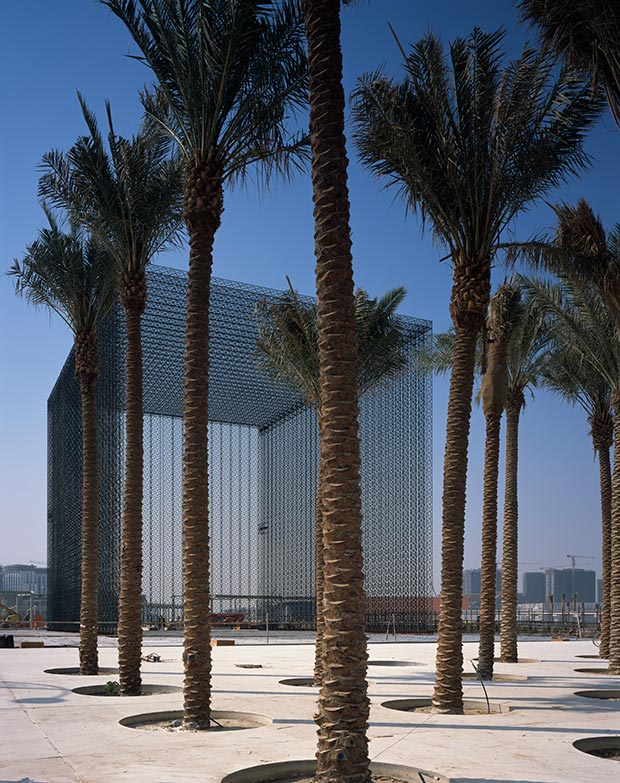 The Expo 2020, Dubai Entry Portals. Designed by Asif Khan. Photo by Helone Binet
The Expo 2020, Dubai Entry Portals. Designed by Asif Khan. Photo by Helone Binet
Adding to the rich history of innovative structures from past World Expos, these portals are a future form of architecture inspired by the aesthetics of the region.
The intricate structures have taken three years to develop and are the first element to be fully revealed from Khan's design of Expo 2020 Public Realm, which comprises more than 6 km of walkable areas across the site.
Asif Khan, the architect of Expo 2020 Dubai's Public Realm, who has described the Expo Entry Portals as his best work yet, said: "The portals are the first thing you see as you approach the site, so they are a landmark at the beginning and end of your journey at Expo 2020. I would like visitors to the Expo, especially children, to be inspired by the architecture they have never seen before, and to be excited that it is part of the heritage of the region. Passing through the doors represents a physical and symbolic act of moving from the past into the future."
The portals will be the first impression of the site upon arrival for the millions of visitors who will attend the first World Expo and the largest event ever to be held in the Arab world.
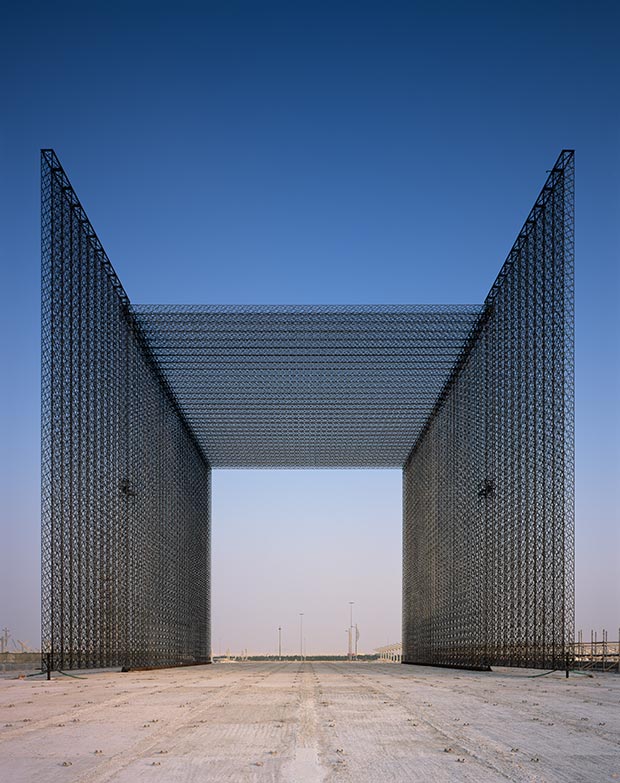 The Expo 2020, Dubai Entry Portals. Designed by Asif Khan. Photo by Helone Binet
The Expo 2020, Dubai Entry Portals. Designed by Asif Khan. Photo by Helone Binet
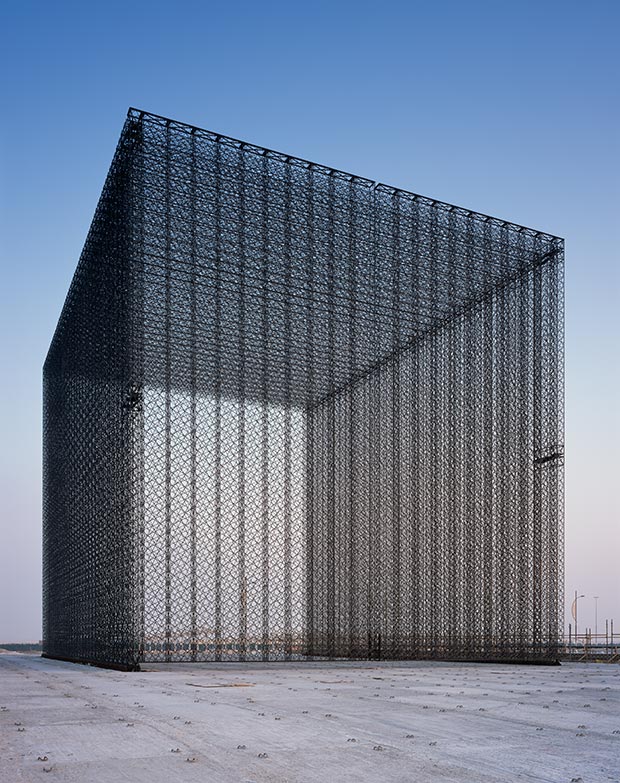 The Expo 2020, Dubai Entry Portals. Designed by Asif Khan. Photo by Helone Binet
The Expo 2020, Dubai Entry Portals. Designed by Asif Khan. Photo by Helone Binet
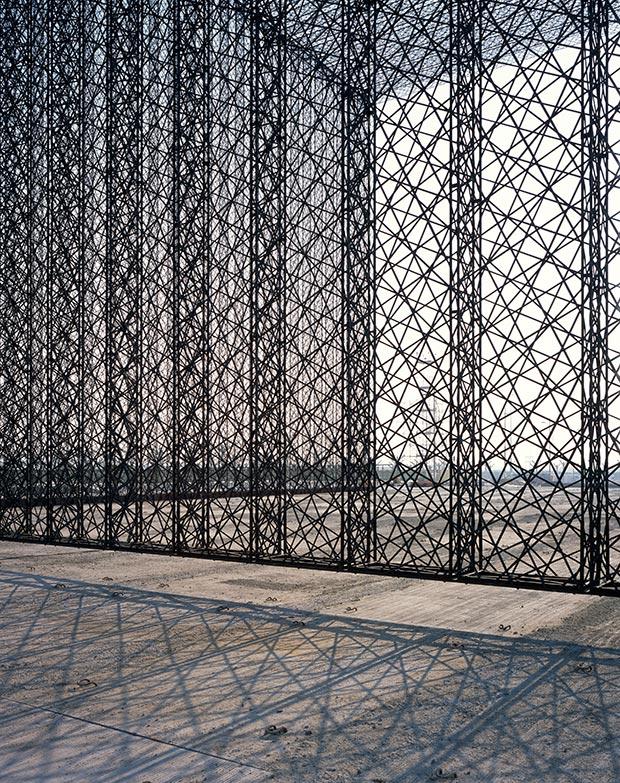 The Expo 2020, Dubai Entry Portals. Designed by Asif Khan. Photo by Helone Binet
The Expo 2020, Dubai Entry Portals. Designed by Asif Khan. Photo by Helone Binet
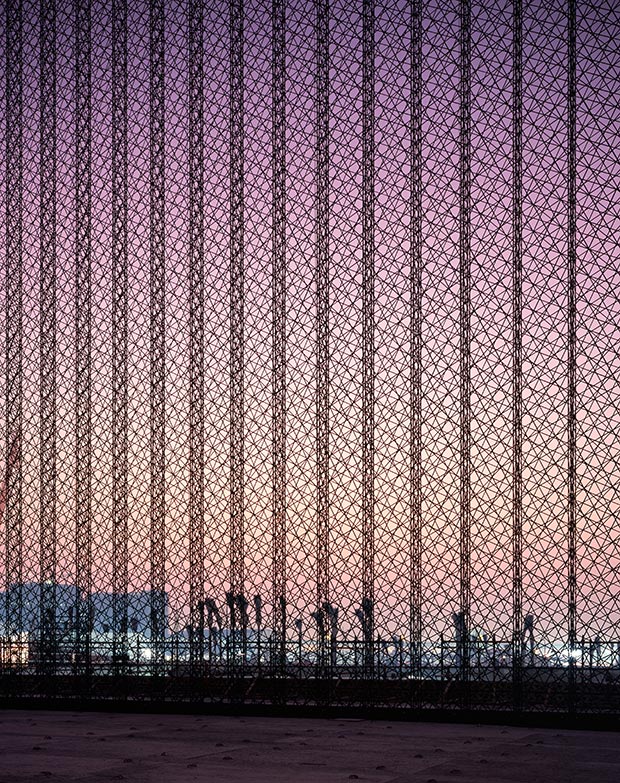 The Expo 2020, Dubai Entry Portals. Designed by Asif Khan. Photo by Helone Binet
The Expo 2020, Dubai Entry Portals. Designed by Asif Khan. Photo by Helone Binet
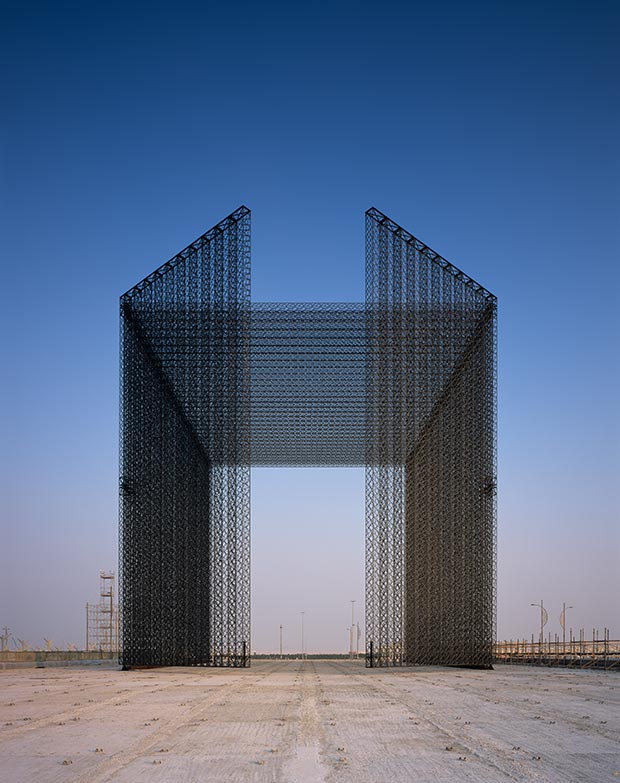 The Expo 2020, Dubai Entry Portals. Designed by Asif Khan. Photo by Helone Binet
The Expo 2020, Dubai Entry Portals. Designed by Asif Khan. Photo by Helone Binet
Asif Khan is the research and development-led architecture studio that designs buildings, landscapes, exhibitions and installations, among other things. Khan's practice explores how material and social innovations can fundamentally alter the way people experience their environment, realised through rigorously detailed and delivered outputs.
Khan is currently working on the new Museum of London at West Smithfield, Tselinny Centre of Contemporary Culture in Almaty and Expo 2020 Dubai's Public Realm. Recently he designed the award-winning UK Pavilion at Astana Expo 2017 and the Hyundai Pavilion at the PyeongChang 2018 Winter Olympics. Notable previous projects include the MegaFaces pavilion at the Sochi 2014 Winter Olympics that won the Cannes Lion Grand Prix for Innovation, the Coca-Cola Beatbox at London 2012 Olympics, a finalist entry in the international competition for the new Guggenheim Museum Helsinki from 1,700 anonymous designs, and a Summer pavilion for the Serpentine Gallery in Summer 2016.
Khan lectures globally and sits on the Board of Trustees for the Design Museum. He was awarded an MBE for services to Architecture in 2017 and the studio was named 'Architects of the Year' by the German Design Council in 2018.
Comments
Add a comment